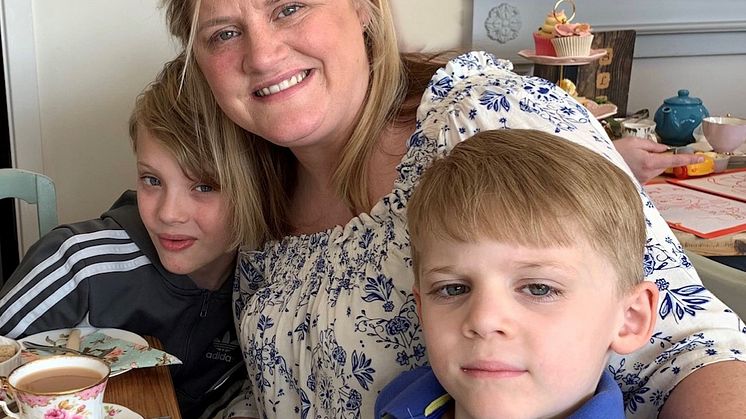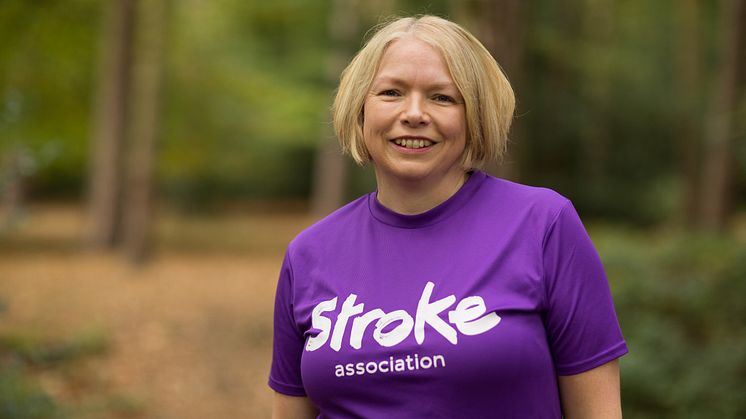
Press release -
Over 14 million UK adults don’t know where a stroke occurs
Over a quarter (27%) of the population don’t know that a stroke occurs in the brain – highlighting a lack of knowledge around the UK’s leading cause of disability.
Nearly half of UK adults know someone who has had a stroke (20 million people), but most admit to a lack of awareness and understanding needed to support stroke survivors in their recovery.
In a separate survey of stroke survivors, more than four out of five (85%) people said the people they had daily contact with did not understand the impact of the stroke.
Startling research unveiled today shows nearly half (45%) of people(i) who know a survivor of stroke personally admitting that they are struggling to support them to make their best possible recovery, according to new findings(ii) published today by the Stroke Association.
The research reveals that one important reason for the lack of stroke support for survivors stems from a lack of awareness of what stroke is and how it affects people. Shockingly, more than a quarter (27%) of the public(ii) don’t know where in the body a stroke occurs: the brain. For those that know a stroke survivor, a huge 82%(i) feel that a greater understanding of stroke would help them support the survivor better.All this, despite stroke being the country’s leading cause of disability.
The research(i) also found that of those who know someone personally who has had a stroke:
Nine in 10 (95%) agreed that family and friends play an essential role in the recovery process.
Nearly half (46%) admitted wanting to do more to help the stroke survivor that they knew but lacked the knowledge to do so.
Nearly a fifth (18%) say they do not properly understand the overall impact of the condition.
In a separate survey(iii) of stroke survivors, more than four out of five (85%) of stroke survivors said the people they had daily contact with did not understand the impact of the stroke. This ‘knowledge gap’ is preventing survivors getting the support they need from those closest to them, and stopping survivors from making the best possible recovery to rebuild their lives after stroke.
In February 2018, Atherton mother, Caroline Sutton, 39, underwent a relatively routine operation to correct a tiny aneurysm. However, her life would never be the same again. Caroline, a Serious Investigation Lead for an NHS trust, and her husband Chris, 42, have two young sons, Max, 9 and George, 6.
Chris said: “The risks of anything going wrong were so small and the procedure so minimally invasive, that she’d potentially be back home within 24 hours. As things turned out, it would actually be over five months before Caroline came home. Our lives would never be quite the same again.
Caroline had suffered a significant blood clot on her brain during the procedure. An attempt to remove this left her with massive bleeding and fighting for her life. Caroline had been in an induced coma for 18 days, when she finally started to come around
Chris said: ““As the days went by, though extremely weak and paralysed down her right side, it became wonderfully apparent that everything about Caroline as a person was still 100% intact.But she was not able to talk or write. All she could say was “four” over and over.Her written language was largely just a collection of letters in word format, which made no sense.
“It would be easy for a stranger to conclude that Caroline was now severely brain damaged. So much so, that she had no way of articulating her thoughts to those around her. The reason most would jump to that conclusion is that as humans, we take language for granted. When someone has no language at all, well, people can assume they have impaired thinking and lost intelligence.However Caroline is as bright and sharp as she’s ever been. She’s still got all the intellectual attributes she always had.
“Despite the heartache and challenges, I’ve never spent as much time laughing as I have with Caroline in the last 12 months. Caroline has now returned to driving. She takes great care of our children and is still the greatest person I’ve ever met. Does her lack of language remove any of her humanity? Not even a slither.”
The charity published its findings to mark the launch of its newest campaign, Rebuilding Lives, which aims to showcase the challenges faced by stroke survivors and those who support them with their recoveries. Other findings reveal the damaging effects that stroke can have on social networks and relationships:
More than one in 10 respondents admitted to seeing the survivor less after the latter had a stroke.
More than one in six of those who know a stroke survivor, admitted spending less time with them because the latter was perceived as not being the same person following the stroke.
A quarter (25%) said there had been a drop in social activity on the part of the stroke survivor.
Chris Larkin, Director at the Stroke Association, comments: “A stroke happens in the brain, the control centre for who we are and what we can do. The impact varies depending on which part of the brain is affected. It could be anything from wiping out your speech and physical abilities, to affecting your emotions and personality. So, it’s a real challenge for everyone as they come to grips with this sudden and life changing event. These findings highlight the complexity of stroke and raises the desperate need amongst people to understand the impact of stroke in order to better support their loved ones.
“There are over 1.2 million stroke survivors living in the UK – many of whom are reliant on their friends and family, from help with daily living to understanding their emotional and mental health needs.
“It doesn’t have to be this way. We’re urging those people who know someone who has had a stroke to help turn this around and fill this knowledge gap. Reach out to the Stroke Association for help, so that together we can support stroke survivors to rebuild their lives.”
For more information about Rebuilding Lives or about stroke, visit www.stroke.org.uk/rebuildinglives.
For more information about what you can expect after a stroke, the Stroke Association has partnered with the Royal College of Physicians to produce a booklet accessible here: https://tinyurl.com/yyqj638z
Topics


